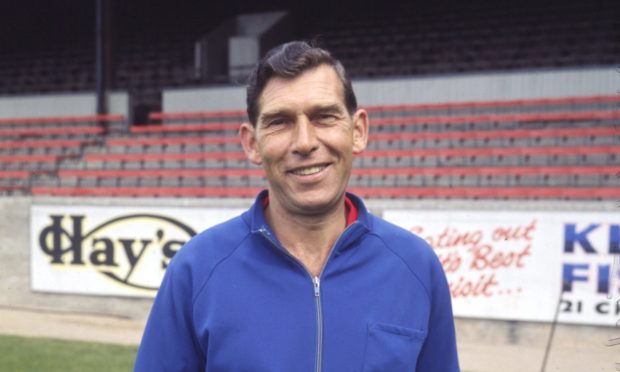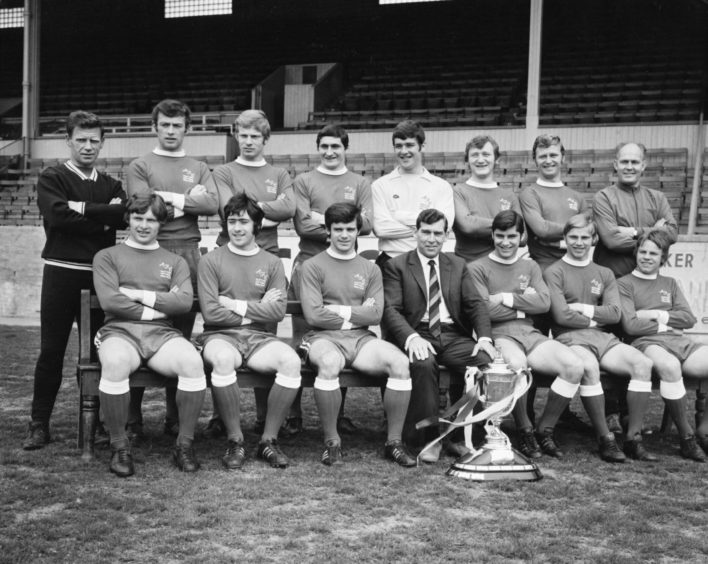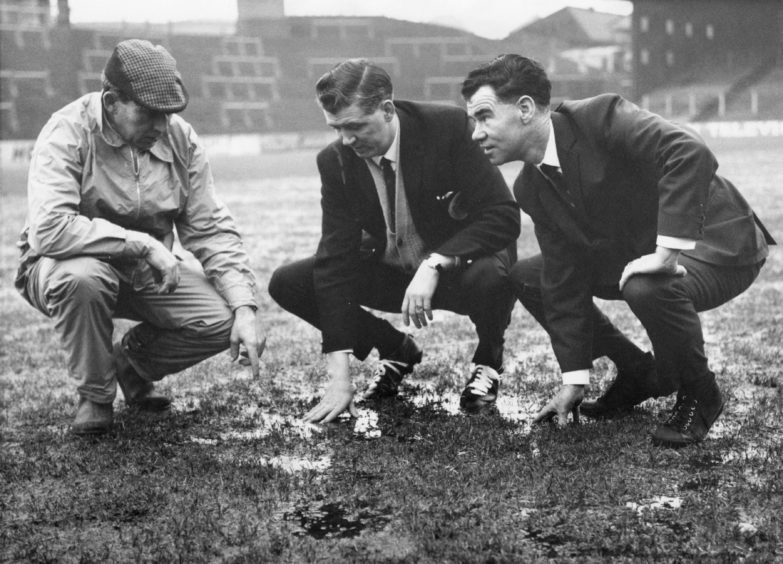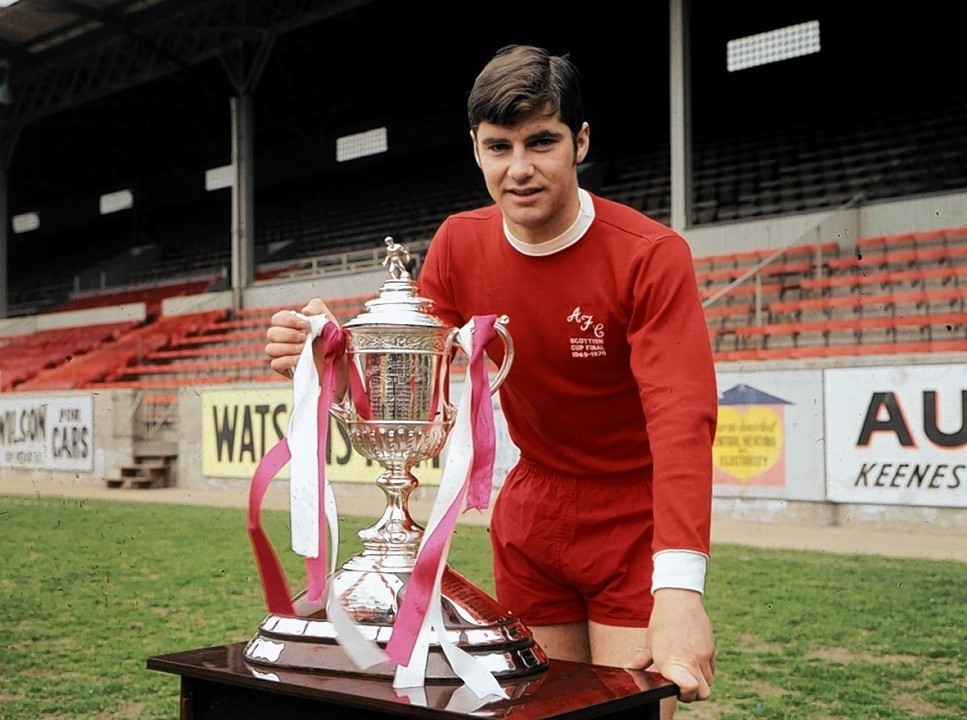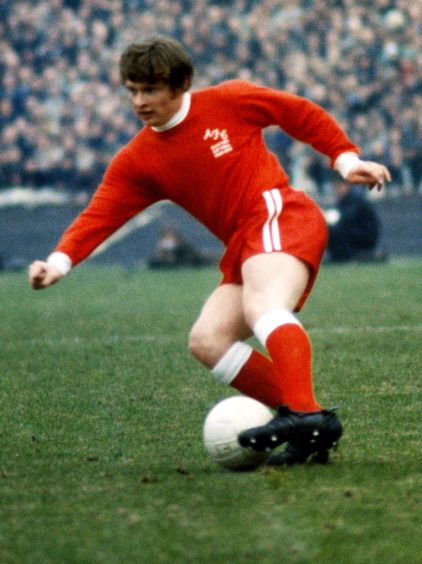There has been a lot of focus in recent weeks on the many achievements of Alex Ferguson, both during his time at Pittodrie and after he moved on to Manchester United.
The release of Never Give In, a poignant exploration of the tough-as-teak Govan gaffer’s myriad exploits in football and his recovery from a brain haemorrhage in 2018, has understandably piqued interest and examination of the fashion in which he transformed the clubs he managed.
Yet, while it’s only right and proper that Ferguson is exalted by Pittodrie aficionados as the man who steered the Dons from a provincial north-east organisation into Europe’s top tier and shattered the Old Firm’s hegemony for several years, we shouldn’t forget the impact which previous incumbents had on bringing a new broom to the Beach End.
Eddie Turnbull died 10 years ago, and is probably best remembered as one of Hibs’ “Famous Five”, the quintet who bewitched, bewildered and bothered opponents throughout the 1950s. But, once he had hung up his boots, he was a towering figure in the dug-out and the dressing room and his contribution to Aberdeen FC should never be forgotten.
When he was appointed in 1965, they were staring at the spectre of relegation and in very poor shape. Turnbull, who never used one expletive where 15 would do, recognised the scale of the malaise and dispensed with 17 players, slashing the wage bill and tackling dissent with a take-no-prisoners approach.
The manager wasn’t remotely interested in tolerating players with ideas above their station or fluffy prima donnas who picked and chose their days to shine.
It made him a tough taskmaster, but those who bought into his philosophy and enhanced their reputations included the likes of Martin Buchan, one of the finest performers ever to grace the Pittodrie turf and who subsequently starred for Manchester United and Scotland.
Buchan said: “As a football coach, Eddie was light years ahead of anybody else whom I worked with at club or international level in my career, which spanned 19 years, including the World Cup finals of 1974 and 1978.
“After he joined Aberdeen, he embarked upon a youth policy whereby he took young hopefuls, many of them local lads like me, and worked us very hard. He gave us the most wonderful education in the game and made men of us.”
“He realised, of course, that he needed experienced players to help bring on the youngsters, but even they became better under his guidance.
“When I eventually left Aberdeen to join Man Utd, I felt I could have gone anywhere in the world and played in any system, thanks to all the things he taught me about the game.”
Others prospered under the Turnbull template. And his powers were evident when Aberdeen met Celtic at Hampden in the 1970 Scottish Cup final, where they were the underdogs against Jock Stein’s honour-strewn stars.
The Glasgow giants featured seven of their Lisbon Lions, including Tommy Gemmell, Bobby Murdoch, Jimmy Johnstone, Davie Hay and Bobby Lennox, and the media thought this would be a stroll in the park for the Stein machine.
But Turnbull was a formidable motivator, an astute tactician, and was blessed with high quality players such as Buchan, Bobby Clark, Joe Harper and Davie Robb. He was also, when required, a scary individual and, prior to the kick-off, recalled: “I gave them an address which would have roused the dead.”
There was ample excitement and controversy during the climactic encounter and Aberdeen took the lead in the 27th minute when referee Bobby Davidson awarded them a penalty, which sparked consternation in the Celtic ranks.
Even as the Parkhead men argued their case, Harper, “the coolest man inside Hampden” was spotted playing keepie-uppie with the ball. Then he scored after sending Evan Williams the wrong way.
Derek McKay doubled his side’s advantage with just seven minutes left, but Lennox narrowed the deficit on the cusp on injury time.
However, as Turnbull recorded: “What followed were the longest seconds of my life until Arthur Graham and Harper combined to give McKay a golden chance, which he converted with glee. We had won the cup for only the second time in Aberdeen’s history and we had done it in style.
“Martin Buchan became the youngest-ever captain (he was only 21) to lift the cup and the lap of honour after the game was wonderful.”
It’s one of football’s great imponderables: might Aberdeen, who were leading the rest, also have won the Scottish championship the following year if their campaign hasn’t been disrupted by a serious fire at Pittodrie?
Turnbull certainly believed that was the case and, although he returned to his old haunts at Hibs in 1972, he left behind a squad filled with tremendous talent and ambition.
He was no sentimentalist, but was moved by the reception he and his players were given when they paraded the Scottish Cup through the city.
He said: “The Lord Provost of Aberdeen was Robert Lennox (the uncle of Eurythmics star Annie) who greeted us as we made our way onto the balcony. It was my 47th birthday, as the Lord Provost announced to the crowd. And to have 100,000 people singing ‘Happy Birthday’ to you is something special.”
Ferguson brought a plethora of trophies to Pittodrie a decade later. But Turnbull was a champion in his own right.
